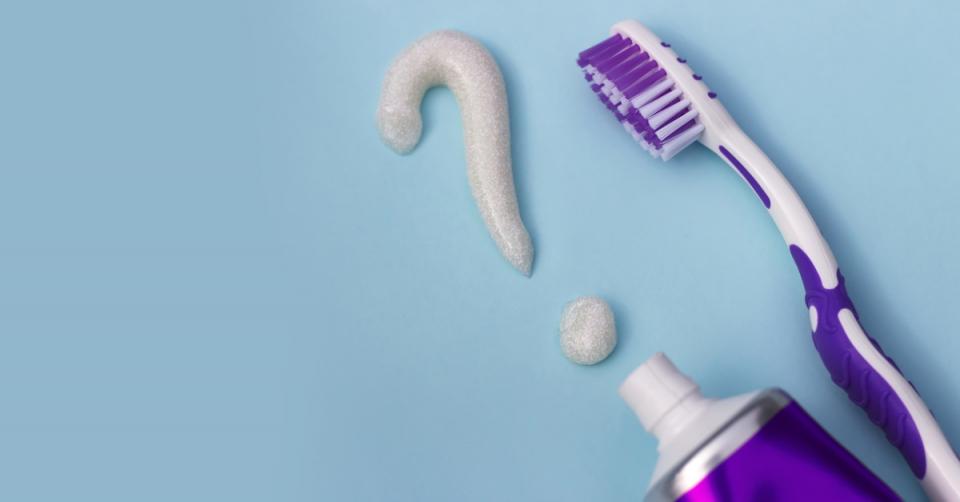 Share on Facebook
Share on Facebook

Found in toothpaste and other everyday household products, triclosan is an antibacterial chemical you'd be better off without. Here's the lowdown on what's wrong with it and what you can do about it.
What is it?
Triclosan is an antibacterial and antifungal agent found in a variety of consumer goods and personal care products. First used as a hospital scrub in the 1970s, triclosan is now so ubiquitous that 75 percent of the US population is likely exposed to the chemical via everyday household and hygiene products.1
Where can you find it?
Although the US Food and Drug Administration (FDA) recently banned the use of triclosan from certain soap products and the European Union has also restricted its use, the chemical can still be found in toothpaste, mouthwash, body wash, facial cleansers, shampoo, deodorant, acne and eczema treatments, cleaning products, plastic cutting boards and more. Sometimes triclosan's close chemical cousin triclocarban is used instead, such as in bar soap.
What's wrong with it?
Triclosan is readily absorbed through the skin and mucous membrane of the mouth into the bloodstream2—bad news because the chemical has been linked to a long list of adverse effects.
In animals, it's been found to disrupt hormones, decrease sperm count, impair muscle function, affect immune responses and promote cancer. In humans it's been associated with infertility, miscarriage, birth defects, allergies
and asthma.
What can you do about it?
Check product labels for 'triclosan' along with its alternative names, which include Irgasan DP-300, Lexol 300, Ster-Zac and Cloxifenolum, and choose triclosan-free alternatives. Also avoid anything containing triclocarban.
As there are numerous other potentially harmful chemicals lurking in many popular products you use on your body or around the home, we recommend seeking out products from companies committed to using only natural, nontoxic ingredients in their formulations.
For personal care products we love Weleda, Dr Bronner's and Green People, while Ecos, E-cloth and Attitude brands are great for worry-free cleaning.
Often, natural products are hard to find in major retailers, but you can get them in health food stores and online. There are plenty of sites now selling a wide range of natural, organic and eco-friendly home, health and beauty products, so you can easily stock up in one stop (see below for our top picks).


J Toxicol Environ Health B Crit Rev, 2017; 20: 447-69
Food Chem Toxicol, 2000; 38: 361-70


